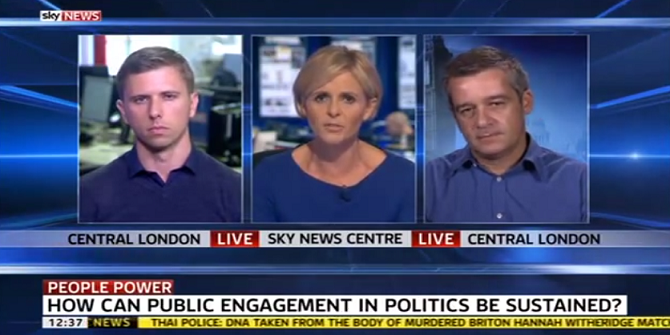The promise of international journalism lies in being multimedia and multilingual, BBC Global News director Peter Horrocks told delegates at the International Journalism Festival in Perugia, Italy. This report by Trish Audette.
“Our network needs to be with our audiences. We can no longer be a BBC fortress, or a castle,” Horrocks said during a keynote speech at the Teatro Pavone sponsored by POLIS.

Where the BBC World Service, born of imperial sentiment, once pushed British news out to the world in several different languages, today the goal is to reflect the news happening in a diversity of international communities; in other words, news “to the world” is now meant to be news “from the world.” In the BBC’s newsroom, Horrocks said reporters and content producers speak “27 different language groups,” a feat he suggested few other global news-gathering agencies can match.
“Much of our journalism, due to budget cuts, is becoming less global,” Horrocks said, discussing the state of international journalism around the world. “But for our part, the BBC will try to become more global.”
It’s a promise that may raise eyebrows for those waiting to see the results of the BBC World Service’s funding model switch over the next three years. Where today the United Kingdom’s Foreign Office foots the bill, in the future the international news-gathering agency will be paid for largely by British citizens, just as are the BBC’s domestic channels.
Nonetheless, Horrocks offered promise for the future: He sees a growing role for networked journalism that draws from citizens of the world just as news is presented to them – with the BBC’s “unbiased” and “impartial” stamp on it. He contrasted the BBC’s news delivery services to China’s recent $7-billion investment in global news, arguing there is a difference between talking to the people you are reporting on and for, and pushing out a political agenda.
– This blog post was written by Trish Audette, a Canadian journalist currently on study leave at the London School of Economics.
Read the full speech here



